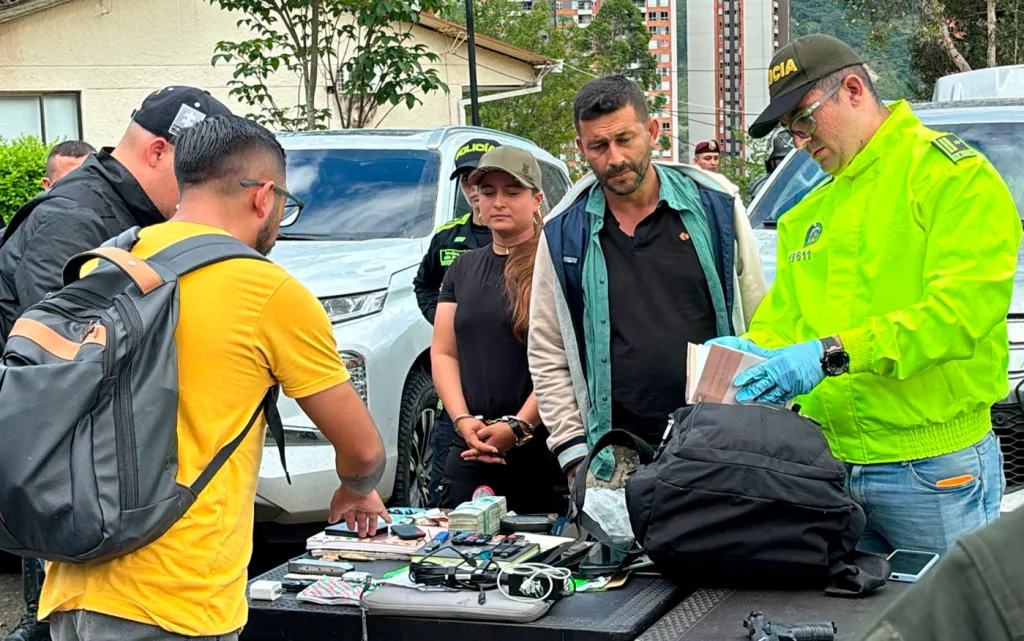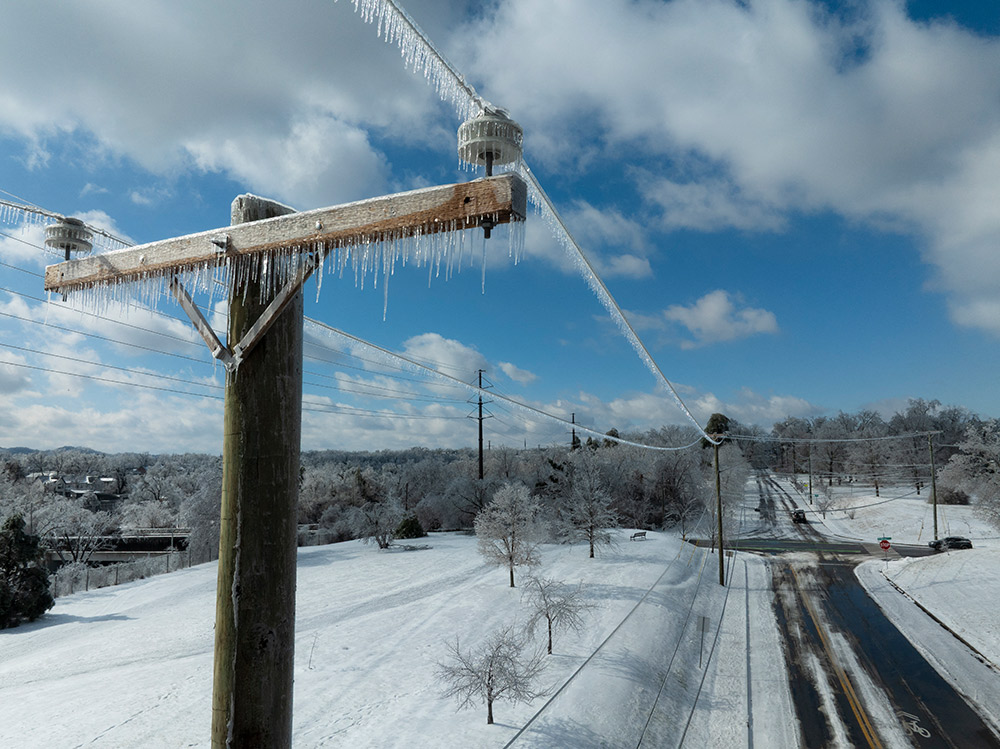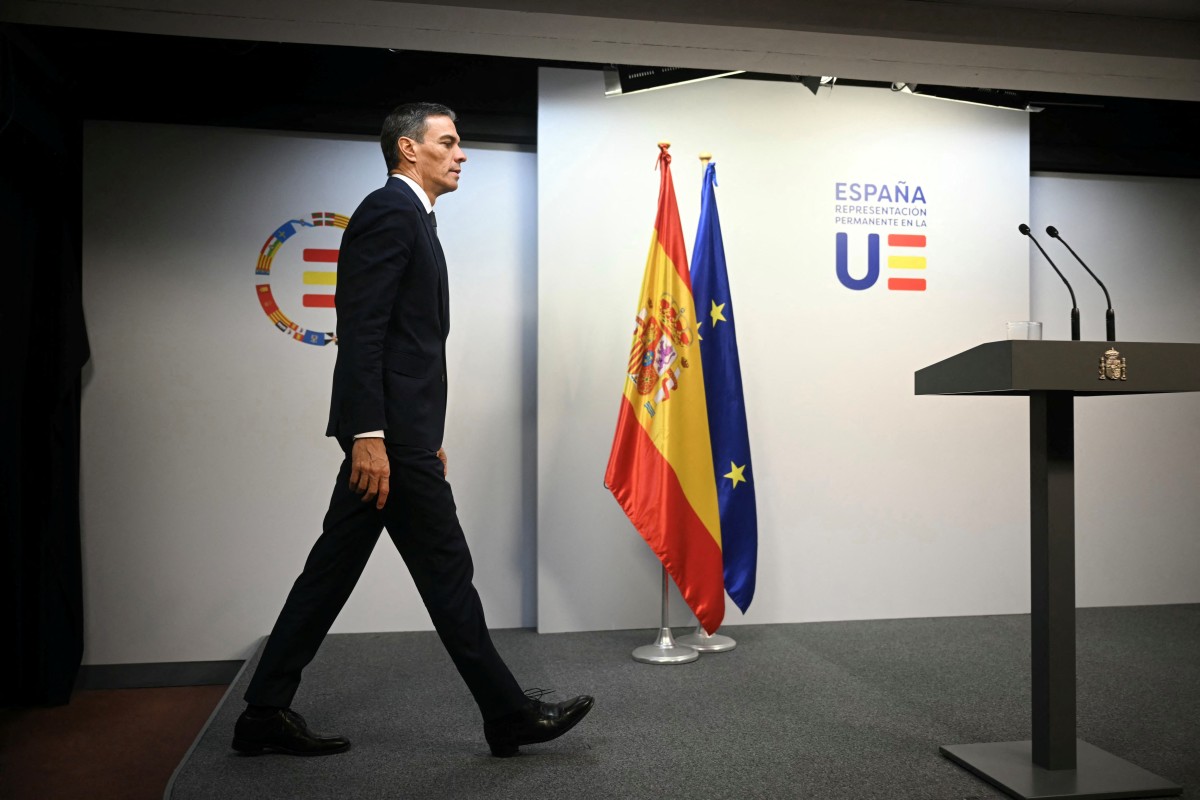International
Seven FARC dissidents who were traveling in official vehicles were captured in Colombia

Seven members of the Central General Staff (EMC), the main dissident of the FARC, were captured in the Colombian department of Antioquia (northwest), when they were intercepted in a surprise military operation when they were moving in official vehicles.
The confirmation of the arrests was made by the Prosecutor’s Office in a statement in which it assured that it “captured in flagrante” seven members who were mobilized in official vehicles of the National Protection Unit (UNP) on a road between the municipalities of Santo Domingo and Barbosa.
The Prosecutor’s Office detailed that “three of them will be released as a result of the suspension of the arrest warrants requested by the national government, as members of the peace negotiating table with that armed organization outside the law.”
It all began when the Army intercepted a caravan of seven vans from the UNP, which depends on the Ministry of the Interior, in which the heads of an EMC block were traveling.
Among them was Alexander Díaz Mendoza, alias ‘Calarcá’, who is the commander of the Magdalena Medio Block and one of the EMC negotiators with the Government, who had valid safe-conduct, but also guerrilla bosses on whom arrest warrants weigh.
The governor of Antioquia, Andrés Julián Rendón, was the one who from the beginning warned of the presence of guerrillas in the caravan of official vehicles, while, as he said, there are two mayors of that region, those of Toledo and San Rafael, who despite being threatened, do not have protection from the UNP.
“There is a very sad thing here and that is that I have two mayors threatened (…) and these criminals walking with the resources of the UNP throughout the country with weapons, with cash, with gold,” said the governor.
The Minister of Defense, Iván Velásquez, said that six members of the dissidents who traveled with alias ‘Calarcá’ were captured at a checkpoint.
He explained that among the detainees is Edgar de Jesús Orrego Arango, alias ‘Firu’ or ‘Leo’, who had an arrest warrant for several crimes.
Likewise, “five more people in flagrante dest,” were arrested, including alias ‘Érika’, “who had in her possession a supplier and other elements and María Alejandra Ojeda, who had a gun in illegal possession,” he said.
Velásquez added that he was also arrested alias ‘Ramiro’, who, despite having the arrest warrant suspended, “admitted to carrying an illegal weapon and for that reason was captured in flagrante delite.”
The same thing happened with ‘Urías Perdomo’, leader of the front Rodrigo Cadete and alias ‘Oliver González’, of the Raúl Reyes Commission.”
The minister pointed out that in the search the authorities found two revolvers, a supplier, bullets and one hundred million pesos in cash (about 25,000 dollars today).
Regarding the situation, the chief negotiator of the Government of Colombia with a part of the EMC, Camilo González Posso, said that the suspension of the arrest warrant with alias ‘Firu’ is in progress but that at the time of being arrested he was in an “irregular situation.”
“In these circumstances we have been informed of the arrest of one of the commanders of front 36, named ‘Firu’ or ‘Leo’, who has suspension of arrest warrant pending, we hope he will come out soon, but anyway it is an irregular situation and we have proceeded in accordance with the law,” added the chief negotiator.
Despite the incident, González Posso said: “We hope that this situation will be clarified (…) we want it to be resolved by law and we can resume the activities planned for this week.”
Last week the Colombian Government announced the termination of the bilateral ceasefire with the EMC due to its constant attacks on the civilian population and the Police in the southwest of the country, but maintained it for three months with three other organizations of that group, including the Magdalena Medio Block.
The EMC has been in peace talks since last year, but the dialogues have been hampered by the frequent attacks of that group in the departments of Cauca, Nariño and Valle del Cauca, in the southwest of the country.
Faced with that situation, the Government suspended contacts with the faction led by alias ‘Iván Mordisco’ last April, with which it ended the ceasefire in force since the beginning of the year, while maintaining them with the other three groups.
International
Winter Storm Fern Leaves 30 Dead and Over One Million Without Power Across the U.S.

The massive winter storm Fern, bringing polar temperatures, battered large portions of the United States for a third consecutive day on Monday, leaving at least 30 people dead, more than one million households without electricity, and thousands of flights grounded.
In the Great Lakes region, residents awoke to extreme cold, with temperatures dropping below -20°C. Forecasts indicate that conditions are expected to worsen in the coming days as an Arctic air mass moves south, particularly across the northern Great Plains and other central regions, where wind chills could plunge to -45°C, temperatures capable of causing frostbite within minutes.
Across the country, heavy snowfall exceeding 30 centimeters in roughly 20 states triggered widespread power outages. According to PowerOutage.com, nearly 800,000 customers remained without electricity on Monday morning, most of them in the southern United States.
In Tennessee, where ice brought down power lines, approximately 250,000 customers were still without power. Outages also affected more than 150,000 customers in Mississippi and over 100,000 in Louisiana, as utility crews struggled to restore service amid dangerous conditions.
International
Spain approves plan to regularize up to 500,000 migrants in Historic Shift

In November 2024, Spanish Prime Minister Pedro Sánchez announced a reform of the country’s immigration regulations aimed at regularizing 300,000 migrants per year over a three-year period, in an effort to counter population aging in a country where births have fallen by 25.6% since 2014, according to official data.
Going against the trend in much of Europe, Spain’s left-wing government has now approved an exceptional migrant regularization plan that could benefit up to 500,000 people, most of them from Latin America.
The measure will allow the regularization of around “half a million people” who have been living in Spain for at least five months, arrived before December 31, 2025, and have no criminal record, Migration Minister Elma Saiz explained on public television.
The plan, approved on Tuesday by the Council of Ministers, establishes that applications will be processed between April and June 30, enabling beneficiaries to work in any sector and anywhere in the country, Saiz said.
“Today is a historic day for our country. We are strengthening a migration model based on human rights, integration, and one that is compatible with economic growth and social cohesion,” the minister later stated at a press conference.
The socialist government of Pedro Sánchez stands out within the European Union for its migration policy, contrasting with the tightening of immigration measures across much of the bloc amid pressure from far-right movements.
Central America
Honduras swears in conservative president Asfura after disputed election

Conservative politician Nasry Asfura assumed the presidency of Honduras on Tuesday with an agenda closely aligned with the United States, a shift that could strain the country’s relationship with China as he seeks to confront the economic and security challenges facing the poorest and most violent nation in Central America.
Asfura’s rise to power, backed by U.S. President Donald Trump, marks the end of four years of left-wing rule and secures Trump another regional ally amid the advance of conservative governments in Chile, Bolivia, Peru, and Argentina.
The 67-year-old former mayor and construction businessman was sworn in during an austere ceremony at the National Congress, following a tightly contested election marred by opposition allegations of fraud and Trump’s threat to cut U.S. aid if his preferred candidate did not prevail.
Grateful for Washington’s support, Asfura—who is of Palestinian descent—traveled to the United States to meet with Secretary of State Marco Rubio, before visiting Israeli Prime Minister Benjamin Netanyahu.
“We need to strengthen relations with our most important trading partner,” Asfura said after being declared the winner of the November 30 election by a narrow margin, following a tense vote count that lasted just over three weeks.
-

 Central America4 days ago
Central America4 days agoGuatemala’s president rules out negotiations with inmates after prison riots
-

 International3 days ago
International3 days agoTrump-Era Defense Plan Prioritizes Border Security and Scales Back Global Commitments
-

 Internacionales4 days ago
Internacionales4 days agoMajor winter storm threatens “catastrophic” ice and snow across much of the U.S.
-

 Central America1 day ago
Central America1 day agoGuatemala seizes over a ton of cocaine hidden in flour at Pacific port
-

 International3 days ago
International3 days agoBogotá and Quito Seek Dialogue After Tariffs and Power Cut Escalate Tensions
-

 International4 days ago
International4 days agoGuatemala considers sending high-risk gang members to military prisons
-

 International2 days ago
International2 days agoDelcy Rodríguez seeks political agreements after Maduro’s ouster
-

 International1 day ago
International1 day agoHistoric snowstorm paralyzes Toronto after 60 centimeters of snow
-

 International2 days ago
International2 days agoFederal immigration agents kill man in Minneapolis, sparking protests and outrage
-

 International4 days ago
International4 days agoRights group says over 5,000 killed in Iran protests, mostly civilians
-

 International1 day ago
International1 day agoSpain’s irregular migrant population rises to 840,000, study finds
-

 International1 day ago
International1 day agoRights group says nearly 6,000 killed in Iran protest crackdown
-

 International1 day ago
International1 day agoVenezuela frees at least 80 political prisoners, NGO says
-

 International1 day ago
International1 day agoEU launches new probe into X over AI-generated fake nude images
-

 International1 day ago
International1 day agoSevere winter storm grips U.S., leaves multiple dead as extreme cold persists
-

 International1 day ago
International1 day agoFrance debates ban on social media for children under 15
-

 Central America59 minutes ago
Central America59 minutes agoHonduras swears in conservative president Asfura after disputed election
-

 Sin categoría44 minutes ago
Sin categoría44 minutes agoEight Killed in Series of Armed Attacks in Ecuador’s Manabí Province
-

 Sin categoría55 minutes ago
Sin categoría55 minutes agoEl Salvador Launches Fourth Year of Ocean Mission to Protect Marine Ecosystems
-

 Central America1 hour ago
Central America1 hour agoBukele leads public trust rankings as UCA survey highlights gains in security
-

 International1 hour ago
International1 hour agoDoomsday clock moves to 85 seconds before midnight amid rising global risks
-

 International57 minutes ago
International57 minutes agoSpain approves plan to regularize up to 500,000 migrants in Historic Shift
-

 International50 minutes ago
International50 minutes agoWinter Storm Fern Leaves 30 Dead and Over One Million Without Power Across the U.S.
-

 Central America48 minutes ago
Central America48 minutes agoGuatemala Police Arrest Prison Guard Caught in the Act of Extortion


























